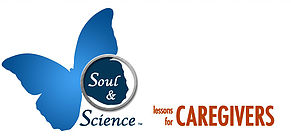VIDEOS

Published on Apr 21, 2015
Patients value clear communication from their care providers. Delivering information about serious topics and bad news is important, so care provides must focus on communicating more clearly.
We know that whether or not the conversations happen is not about the patient, but rather the clinician, who needs to initiate. Why? Because end-of-life discussions are associated with better quality of patient life near death, fewer invasive interventions, and better outcomes for the caregiver. It is also good for the patient’s family.
Published on Jan 9, 2017
(Visit: http://www.uctv.tv) Dr. Alex Smith is a clinician-researcher at the University of California San Francisco who is at the forefront of efforts to integrate geriatrics and palliative care. This course was made possible by the Optimizing Aging Collaborative at UCSF which is supported by the UCSF Geriatrics Workforce Enhancement Program: Health Resources and Services Administration (HRSA) Grant Number U1QHP28727. Recorded on 11/08/2016. Series: “UCSF Osher Center for Integrative Medicine presents Mini Medical School for the Public” [1/2017] [Health and Medicine] [Show ID: 31556]
Published on Feb 10, 2015
Why is it so hard for doctors to speak openly with their terminally ill patients about death as the end nears? Dr. Atul Gawande, Boston surgeon and author of the best-selling book “Being Mortal” had a remarkably candid and intimate conversation with the widower of a deceased patient and apologizes for offering false hope in the end.
It’s the story of Sara Monopoli who was diagnosed with Stage 4 lung cancer during the 9th month of her pregnancy at the age of 34.
The Monopoli case is one of the key stories that inspired Gawande to explore the big question of what really matters in the end.
Video: ‘How Much Time Do I Have, Doc?’ A video discussion tackles that question
Roger Sergel, Executive Producer, MedPage Today August 01, 2018
“How much time do I have, doc?” — This was the provocative title of a session at the American Society of Clinical Oncology annual meeting, which included talks by Thomas W. LeBlanc, MD, of Duke University, whose research includes decision-making scenarios for oncologists and their patients, and Jennifer Temel, MD, of Massachusetts General Hospital, whose clinical interests include symptom management and quality of life.
MedPage Today invited two others to talk about the issue: Sagar Lonial, MD, of Emory University School of Medicine, and Ronald M. Epstein, MD, of the Center for Communication and Disparities Research at the University of Rochester Medical Center, which focuses on how to improve communication between clinicians, patients, and their loved ones.
In this video discussion these four experts explore conversations about exceptional responders, what shared decision-making is and isn’t, and how to answer that critical patient question about “time left.”
